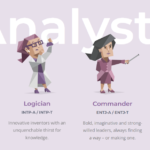In early June, a New York lawyer with over 30 years of experience, Steven A. Schwartz, was subpoenaed by the court for his use of ChatGPT in his work. It was discovered that the information he had obtained through ChatGPT was entirely fabricated.
Exaggeration of AI Legal Risks, Collaboration Knowledge is Key.
According to a report by The New York Times, Schwartz attempted to use ChatGPT as a substitute for his own research in searching for relevant legal precedents and citations for a particular case.
“I heard about this tool from my son, and I thought it was like a super search engine,” he said.
As a result, ChatGPT generated a fictitious case with such realistic details that Schwartz submitted it to the court under the assumption that it was a real case.
This case has sparked discussions in the legal community, and Rebecca Roiphe, a professor at New York Law School, believes that the responsible and proper integration of generative AI into legal applications is an urgent issue that needs to be addressed. Irina Raicu, another expert in technology ethics, points out that such situations often arise because users are not aware of ChatGPT’s operating principles and limitations.
Ryan O’Leary, a legal technology expert at research firm IDC, shared his views with the Financial Times, stating that concerns about AI disrupting legal rules and replacing lawyers’ work are exaggerated. “What people need to know is how to effectively collaborate with AI.”
AI review is 20 times faster than manual! Drafting contracts only takes a few minutes.
AI has been proven to be more efficient in many legal applications, from reviewing contract details, and finding violations, to checking financial data. According to the software platform, ThoughtRiver, AI can help companies draft, store, search, and manage contracts and documents, usually taking only a few minutes to complete tasks that would take a lawyer at least 4 hours.
Especially in the past few months amid the ChatGPT explosion, AI has shown to be a more efficient worker. In April, Ironclad, a legal technology provider in the US, released an AI contract writing tool called AI Assist, which uses OpenAI’s GPT-4 technology. It can read the non-disclosure agreements (NDA) between companies, compare them with the customer’s current contracts and legal terms, and propose modification suggestions. Users can also train AI to identify violations in contracts or documents by themselves. The efficiency of the AI review is about 20 times that of the manual review.
Global consultancies and startups vie to boost legal department productivity.
Accenture, one of the world’s largest consulting firms, has also introduced AI for legal work, including contract review and signing. While still in the early stages of implementation, the company’s Chief Legal Officer, Christina Demetriades, estimates that the legal department’s productivity will increase by 15% to 20% within three years, and “employees will have more time to enhance their professional skills.”
Ryan O’Leary, a legal expert, pointed out that “negotiations and the interpretation of clauses still need to be executed by lawyers.” When dealing with different client needs, the system usually requires several months of adjustment and training to reduce the risk of errors. However, generative AI still has the potential to lay the foundation for the legal industry to automate contract drafting and review.








